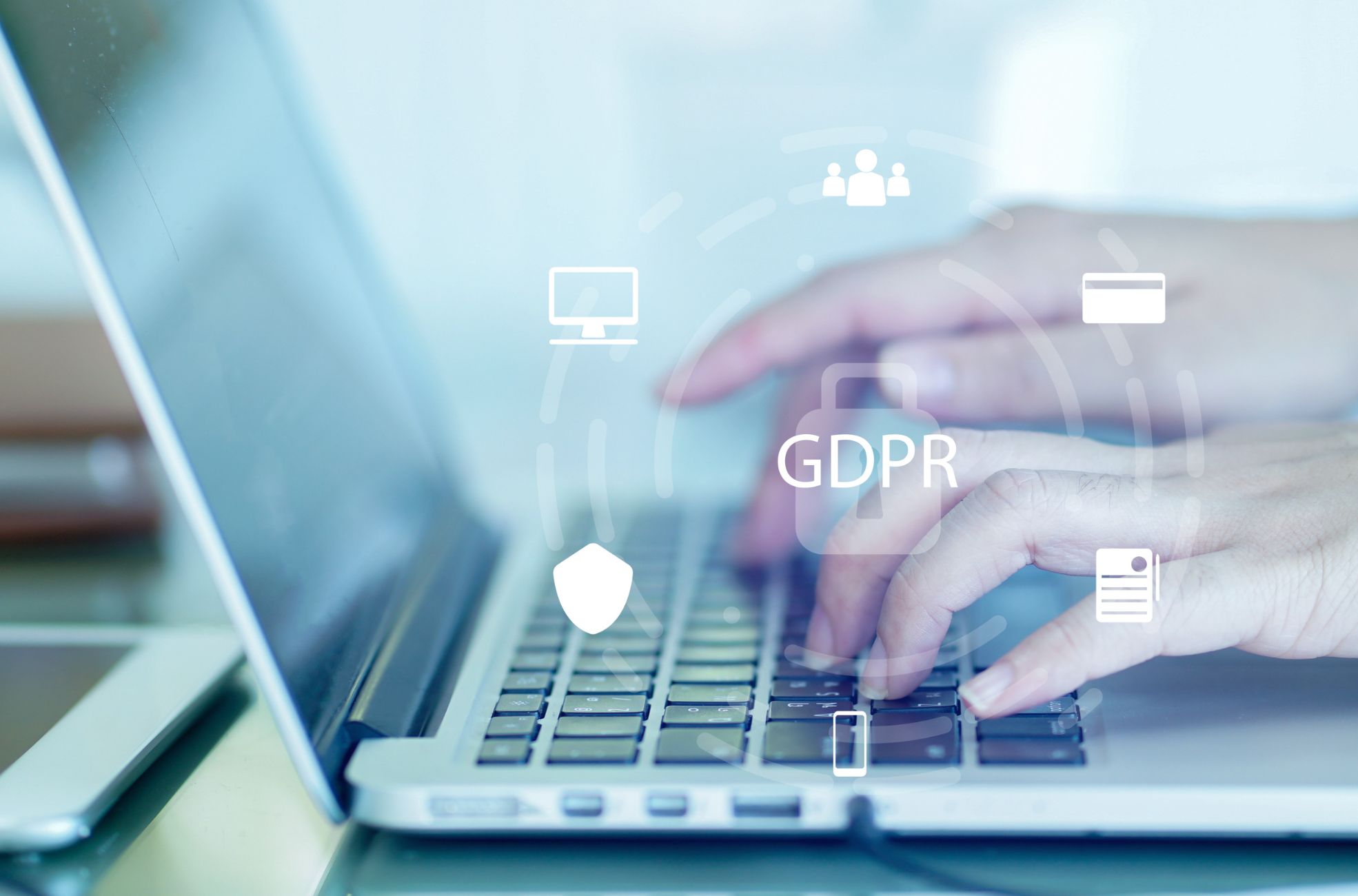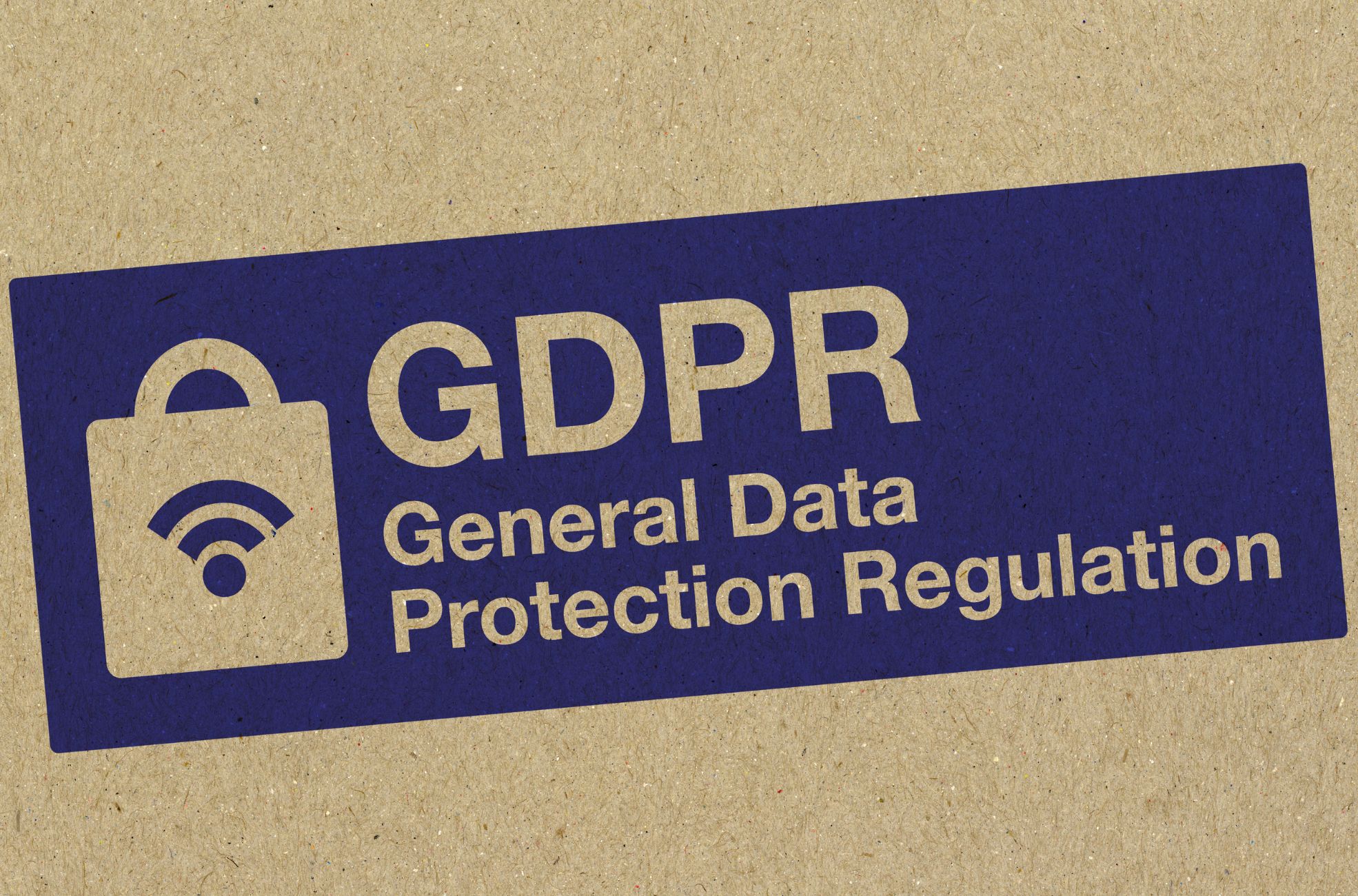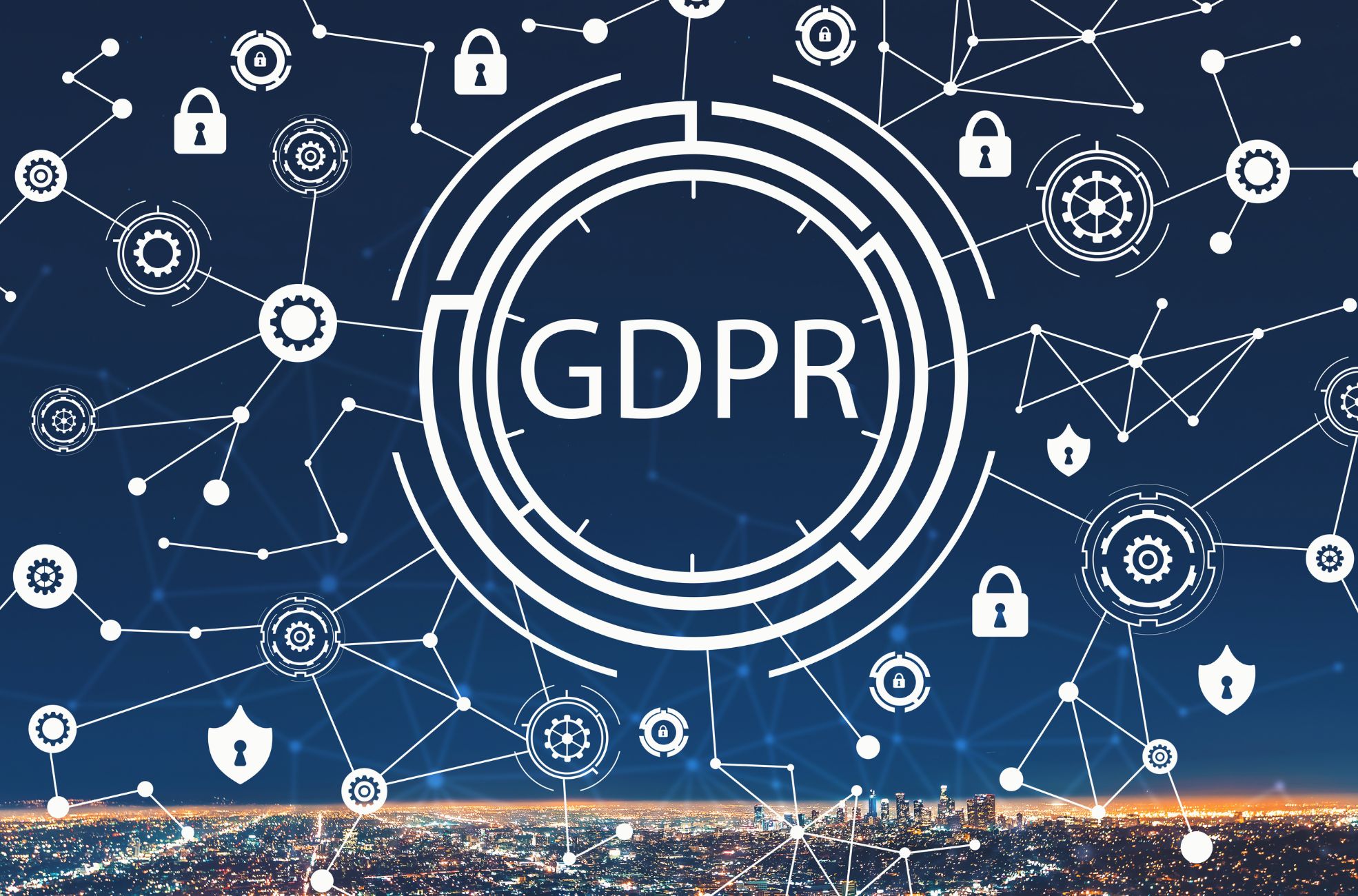In the interconnected world of data exchange, GDPR compliance in the UAE represents a critical consideration for businesses operating within the Emirates. The General Data Protection Regulation (GDPR), the EU’s benchmark for data protection and privacy, extends its reach to non-EU countries, including the UAE, that handle the personal data of EU residents. We are here for you, providing insight into the intricacies of GDPR compliance for UAE-based entities.
It navigates through the UAE’s data protection landscape, outlines the steps necessary for adherence to GDPR requirements, and delves into best practices and tools that can assist organisations in maintaining compliance. Whether you’re an SME or a multinational corporation in the UAE, understanding GDPR is paramount in today’s digital economy, we equip you with the essential knowledge to navigate the complex terrain of data privacy laws.
GDPR and Its Global Impact
What is GDPR?
The General Data Protection Regulation (GDPR) is a comprehensive data privacy law that took effect on May 25, 2018, within the European Union (EU). It’s designed to give you more control over your personal data. It also aims to standardise data protection regulations across Europe.
The GDPR mandates that organisations take strong measures to protect personal data, including technical safeguards like encryption. The regulation also introduces hefty penalties for those who don’t comply.
Primary Goals and Principles of GDPR
GDPR’s main aim is to boost the protection of personal data and expand the rights of individuals. It gives you more say over how your information is collected, processed, and kept safe. The regulation sets clear guidelines for data management.
Companies must be transparent about how they process data. The regulation enshrines several key rights for you. These include the right to be informed about data collection, access to your data, and correction of any inaccuracies.
You also have the right to erase your data, restrict processing, and move your data elsewhere. You can also object to how your data is processed and be safeguarded against decisions made without human intervention.
GDPR’s Reach Beyond the European Union
GDPR’s impact reaches far beyond the EU’s borders. It applies to any organisation that processes the personal data of EU residents or offers goods and services to them. This means that businesses worldwide need to comply with GDPR if they deal with data from people in the EU.
The regulation doesn’t care about the citizenship of the person whose data is being processed. It zeroes in on the individual’s location. So, non-EU citizens living in the EU get GDPR protection, while EU citizens outside the EU don’t.
The UAE’s Position on Data Protection
The United Arab Emirates (UAE) hasn’t yet adopted a comprehensive data protection law like GDPR. However, personal data is protected under various provisions in different UAE laws and regulations. The UAE Constitution even guarantees the confidentiality of your communications.
The UAE Penal Code punishes privacy breaches. Specific laws have clauses that safeguard personal information and penalise the leaking of confidential info. For example some of these laws are related to
- The Medical Profession
- Telecommunications,
- Cybercrime
- Printing and Publishing
- Data dissemination in Dubai
Beyond federal laws, some areas within the UAE have their own data protection legislation. For instance, the Dubai International Financial Centre (DIFC) and the Abu Dhabi Global Market (ADGM) have laws that mirror the EU’s GDPR more closely. These laws govern how personal data is collected, used, and transferred within their domains, signalling a step towards stronger data protection standards in the UAE.

GDPR Compliance Requirements
If you’re operating within the UAE, adherence to the GDPR’s stringent requirements for personal data protection is essential. This involves a holistic approach to data management that prioritises transparency, accountability, and the enforcement of data subjects’ rights.
Key Data Protection Obligations
Entities must ensure that personal data is processed lawfully and transparently. A documented lawful basis for data processing activities is required, and data subjects must be informed about the usage of their information. Article 5 of the GDPR encapsulates these principles and is often cited in penalty notices, highlighting its significance.
Organisations should scrutinise their data handling practices to align with the GDPR’s lawful bases for processing. Providing accessible and clear privacy notices is essential. It’s imperative to collect personal data solely for explicit and legitimate purposes and maintain records of these purposes.
Prompt deletion of data that is no longer necessary for the initial purpose is crucial to avoid unnecessary data retention.
Rights of Data Subjects under GDPR
Data subjects are endowed with various rights over their personal information. These include the right to be informed about data processing, access to data, and correct inaccuracies. They also have the right to restrict processing in certain scenarios and the right to data portability, enabling them to transfer their data to a different service provider.
They can object to data processing and have protections regarding automated decision-making and profiling. Facilitating the exercise of these rights is mandatory, as non-compliance can result in significant fines.
Data Processing and Consent
While consent is fundamental to GDPR compliance, it is only one of six lawful bases for processing personal data. Consent should be sought only when other lawful bases are not applicable. When relying on consent, it must be explicit, such as through an opt-in mechanism, and given in an informed and unambiguous manner.
Requests for consent must be presented clearly, distinctly from other terms, and in understandable language. Data subjects have the right to withdraw their consent at any time, and the conditions under which consent is given must be considered, particularly when it is a prerequisite for a contract.
Breach Notification and Penalties
Any incident leading to accidental or unlawful destruction, loss, alteration, or unauthorised disclosure of, or access to, personal data constitutes a personal data breach. Organisations are required to notify the appropriate supervisory authority within 72 hours of becoming aware of the breach, provided it poses a risk to individuals’ rights and freedoms.
Penalties are scaled to ensure deterrence, with minor infractions potentially resulting in fines of up to USD 10.1 million or 2% of the company’s global annual revenue. More severe violations can incur fines of up to USD 2.1 million or 4% of the company’s global annual revenue.
The determination of fines considers the nature of the infringement, remedial actions taken, and the level of cooperation with the supervisory authority.

Data Protection Laws In The UAE
The Legal Framework for Data Protection in the UAE
The Personal Data Protection Law (PDPL), which commenced on January 2, 2022, is the UAE’s inaugural federal data protection legislation, crafted to safeguard individual privacy and mandate responsible personal data handling by entities. This law impacts data controllers and processors both within the UAE and those abroad who manage the personal data of individuals in the UAE or engage in business there.
The PDPL endows individuals with rights such as accessing, amending, erasing, and restricting the processing of their data. It imposes duties on data controllers and processors, including upholding data security, notifying the UAE Data Office of data breaches, and complying with rules on international data transfers. The UAE Data Office, instituted by the Federal Decree-Law No.44 of 2021, is responsible for the PDPL’s enforcement, standard setting, complaint handling, and guidance provision.
Despite the PDPL’s introduction, the data protection landscape in the UAE remains multifaceted, with existing regulations in financial free zones like the DIFC and the ADGM still operative. The UAE Constitution ensures the confidentiality of communications, and additional laws, such as the Cyber Crime Law and the Federal Decree-Law No 14 of 2023 On Trading by Modern Technological Means, contribute further to data security and privacy.
Comparing UAE’s Data Protection Regulations and GDPR
The PDPL and GDPR empower individuals with control over their personal data and prescribe responsibility for data handlers. Shared rights include being informed, accessing data, rectifying inaccuracies, erasure, processing limitations, and data portability.
However, there are distinctions. The GDPR is known for its substantial fines for non-compliance, which can be as higher than USD 20 million or 4% of a company’s annual global turnover. The PDPL’s penalties are yet to be detailed, with forthcoming executive regulations expected to provide clarity.
The GDPR’s scope encompasses any entity processing data of EU residents, regardless of the entity’s location. The PDPL also applies extraterritorially but includes certain exemptions and operates in conjunction with the data protection laws within the UAE’s free zones.
Challenges for UAE Companies in Complying with GDPR
Aligning with GDPR standards can be particularly challenging for UAE SMEs due to resource constraints. The financial burden of legal, information security and compliance initiatives can be substantial, and appointing a Data Protection Officer may be impractical for smaller firms.
The GDPR’s stringent breach notification requirements and privacy governance mandates necessitate comprehensive data management systems. Firms must ensure their privacy policies are transparent and that proactive measures are taken to safeguard data. This encompasses data mapping, risk assessment, and the creation of data handling policies and procedures.
The regional private sector, which is instrumental in reducing reliance on oil and gas, must adhere to GDPR in addition to national regulations. Balancing this dual compliance, especially in the face of cyber threats, poses a significant challenge.
Firms also face technological hurdles, such as embedding ‘Privacy by Design’ into their operations and handling data access requests, retention, and international transfers. A collaborative effort from legal, risk, IT, and procurement departments, led by a Data Protection Officer, is vital for ensuring adherence to GDPR and other data protection regulations.

Preparing for GDPR Compliance in the UAE
Conducting Data Protection Impact Assessments
For new initiatives that may impact personal data security, conducting a DPIA is essential. This assessment is a requirement under the GDPR for certain high-risk data processing activities. It should include a thorough analysis of the processing objectives, a risk assessment regarding individuals’ rights and freedoms, and strategies to mitigate identified risks.
The DPIA must be completed prior to initiating data processing. In the UAE, Federal Decree-Law No. 45 of 2021 reinforces the necessity for such assessments, underscoring the commitment to personal data protection.
Implementing Data Protection Policies and Procedures
Establishing robust data protection policies and procedures is a cornerstone of GDPR compliance. These should delineate the extent and intent of data processing, adhere to data protection principles, enumerate the rights of data subjects, and set forth guidelines for handling data breaches and sharing data with third parties.
The DPO or legal teams are responsible for formulating these policies. In the UAE, the recent legislation reflects GDPR’s foundational principles, necessitating the creation of policies tailored to the specific provisions of the GDPR and the UAE’s regulations.
Training and Awareness for Employees
Ensuring that staff are educated and aware of data protection practices is crucial. Continuous training is necessary to avoid data breaches and to ensure the proper handling of personal data. As regulations change, it’s imperative that training programs are updated accordingly.
Inadequate training can result in significant penalties and damage to reputation. With the PDPL now in effect, UAE organisations should revise their training initiatives to encompass both the GDPR and the PDPL, equipping employees with knowledge pertinent to data protection within the UAE.
Data Protection Officer Role and Responsibilities
The DPO is a pivotal figure in ensuring GDPR compliance. Their responsibilities include:
- Guiding the organisation on its obligations.
- Overseeing adherence to data protection laws.
- Facilitating training.
- Conducting DPIAs.
- Serving as a point of contact with regulatory bodies.
With the PDPL’s enactment, UAE entities are expected to designate a DPO or equivalent to manage compliance with both the GDPR and the PDPL. The DPO must also ensure that the organisation’s practices are in line with the guidelines set by the UAE Data Office.
By undertaking comprehensive DPIAs, crafting detailed data protection policies, providing up-to-date training, and designating a knowledgeable DPO, organisations in the UAE can effectively manage their data protection responsibilities and reduce the risk of penalties.

Best Practices and Tools for GDPR Compliance
Privacy by Design and Default Strategies
Incorporating privacy considerations into the development phase for new products, services, or processes is a fundamental aspect of GDPR. Organisations must perform a PIA to identify and mitigate risks associated with handling personal data.
Maintaining an up-to-date data inventory is crucial, as it provides stakeholders with a clear understanding of the data they oversee. This proactive approach to privacy should also be reflected in policies for obtaining data collection consent, which significantly influences data collection methods from online forms and cookies.
Secure Data Processing and Encryption Techniques
Encryption is a key element in secure data processing. It involves converting data into an unreadable format without a key, safeguarding it from unauthorised access. Symmetric and asymmetric encryption cater to different needs.
Selecting appropriate encryption algorithms and key sizes is critical, as is choosing suitable software for encrypting and decrypting data. Technologies like VPNs or HTTPS with TLS certificates are commonly employed for data in transit. Encrypting data at rest with securely managed keys ensures that compromised data remains inaccessible. Adhering to encryption best practices is essential for preventing data breaches and avoiding penalties.
Regular Compliance Audits and Monitoring
Conducting regular audits and monitoring ensures ongoing compliance with GDPR. Organisations must document their privacy protection practices, including all personal data processing activities, and keep this documentation current.
The DPO plays a crucial role in overseeing the organisation’s data protection strategy and ensuring it aligns with GDPR standards. Audits may also necessitate updates in vendor contracts to incorporate GDPR compliance clauses and periodic reviews.
Employee awareness of their role in data protection is vital. Organisations are obligated to report data breaches to local data protection authorities within strict deadlines.
Utilising Compliance Software and Consultants
Leveraging compliance software and consultants can alleviate the complexities of adhering to GDPR. Compliance software aids in tasks such as data mapping, impact assessments, and consent management. It also assists in monitoring and reporting on compliance, which is key for maintaining transparency and accountability.
Consultants offer guidance on data protection best practices, conduct audits, and assist in implementing security measures. They can also develop awareness campaigns and training materials for various organisational roles. Engaging with GDPR experts ensures that compliance efforts are comprehensive and current.
Stepping Towards Compliance
As the UAE strides forward in its quest to create a resilient and empowering data protection ecosystem, GDPR compliance emerges as a beacon for best practices. Entities in the UAE must harness the essence of GDPR – its commitment to transparency, accountability, and safeguarding personal data rights. Whether enforced by regional edicts or the GDPR’s extraterritorial reach, the message is clear: robust data protection is non-negotiable.
UAE-based businesses are called to align with these international standards and embed them into their core operations. As new provisions emerge and the data landscape evolves, continuous vigilance and adaptive strategies will be the key to mastering the art of compliance and maintaining trust in a data-driven economy.
FAQs
Is GDPR Applicable to UAE?
The General Data Protection Regulation (GDPR) is a regulation in EU law on data protection and privacy in the European Union and the European Economic Area. It does not directly apply to the UAE. However, GDPR is applicable to UAE-based companies that process the personal data of individuals residing in the EU in connection with offering goods or services to them or monitoring their behaviour within the EU. Thus, while the GDPR is not UAE law, its extraterritorial provisions can make it applicable to certain operations within the UAE.
What Is the Personal Data Protection Law in the UAE?
The UAE has introduced its own data protection regulation, the UAE Data Protection Law, which is modelled on various international standards, including aspects of the GDPR. Specifically, prominent examples are the Dubai International Financial Centre (DIFC) Data Protection Law No. 5 of 2020 and the Abu Dhabi Global Market (ADGM) Data Protection Regulations 2021. These laws aim to protect personal data, regulate data processing, and ensure privacy rights, marking significant steps towards aligning with international data protection standards.
Is GDPR Compliance Mandatory?
GDPR compliance is mandatory for all organisations, within or outside the EU, that process the personal data of individuals residing in the EU as part of the activities of an EU establishment. This includes companies that offer goods or services to EU residents or monitor their behaviour, as well as entities that collect, store or process personal data on behalf of another organisation subject to GDPR. Non-compliance can result in significant fines and penalties.
What Is Allowed Under GDPR?
Under GDPR, personal data can be processed if at least one of the following applies: the data subject has given clear consent; processing is necessary for the performance of a contract with the data subject; it’s required for compliance with a legal obligation; it’s essential to protect the vital interests of the data subject or another person; it’s necessary for the performance of a task carried out in the public interest or the exercise of official authority; or for legitimate interests pursued by the data controller or a third party, unless these interests are overridden by the interests or fundamental rights and freedoms of the data subject. GDPR also grants individuals rights over their data, including access, rectification, deletion, and portability.









